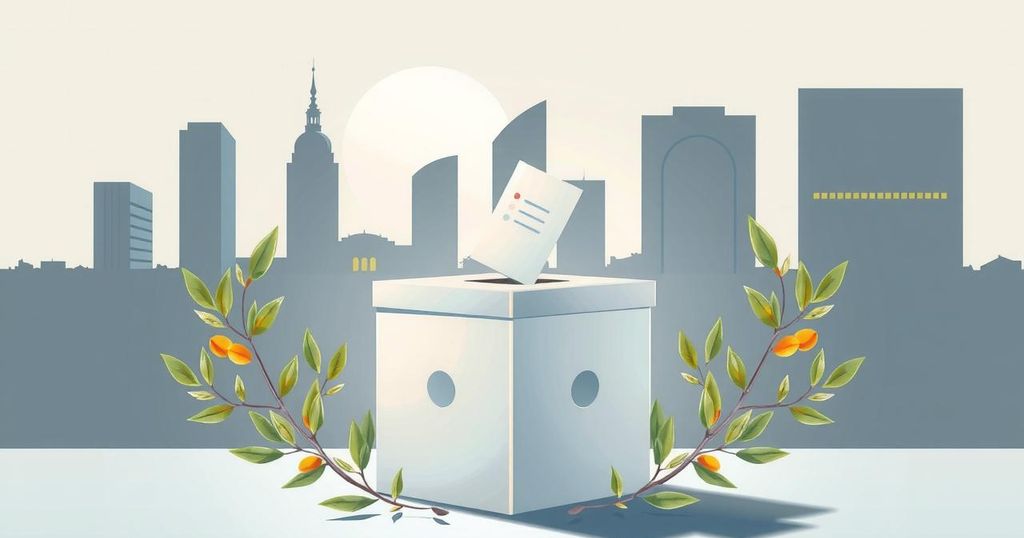Ecuador’s presidential election features incumbent Daniel Noboa and challenger Luisa Gonzalez, focused on addressing the nation’s security crisis and economic struggles. Noboa’s assertive crime policies are challenged by calls for social reforms from Gonzalez. The election unfolds amid rising violence and economic downturns, making it a pivotal moment for Ecuador’s future.
Ecuador is set to hold a presidential election, where incumbent President Daniel Noboa seeks re-election against his primary challenger, left-wing lawmaker Luisa Gonzalez. Polls will be open for ten hours, reflecting widespread concern over the current security crisis and the nation’s struggling economy. Noboa, just 14 months into his presidency, faces 15 opponents while combatting rampant crime exacerbated by drug trafficking and gang violence.
Daniel Noboa, who ascended to power as the youngest leader, promotes a strong stance against crime, claiming his policies have led to reductions in homicide rates and prison violence. However, his opponents argue that further actions are necessary to combat the worsening situation. Gonzalez emphasizes that security must include social programs aimed at improving the most violent areas of the country.
The election highlights significant concerns regarding rising violence, with many voters expressing a desire for strong leadership in the face of instability. Analysts suggest that the electorate may favor a more authoritarian approach to governance as they want decisive action against crime. Noboa’s administration has faced criticism for alleged human rights abuses associated with military intervention in civilian matters.
Despite these challenges, the economic situation remains dire, with some indicators suggesting Ecuador has entered a recession. Noboa’s administration has sought assistance from the International Monetary Fund to stabilize the economy, a point Gonzalez has addressed, ensuring that if elected, she would continue cooperation with international financial institutions without compromising the welfare of working families.
The political landscape in Ecuador is marked by a surge in violence attributed to drug trafficking, with rival gangs fighting for control and contributing to the country’s rising homicide rates. President Daniel Noboa’s administration has implemented a tough stance against crime, including military deployment to urban areas and prisons, which has drawn both support and criticism, particularly from human rights advocates. This election unfolds against a backdrop of economic challenges, including a possible recession, prompting discussions about the balance between security and social justice.
The upcoming presidential election in Ecuador represents a critical juncture for the nation, as voters will decide between the continuation of Daniel Noboa’s tough-on-crime policies and Luisa Gonzalez’s approach that seeks to incorporate social justice into the fight against violence. With significant economic concerns and a pressing security crisis, the outcome will have lasting implications for both governance and societal stability in Ecuador.
Original Source: www.aljazeera.com






